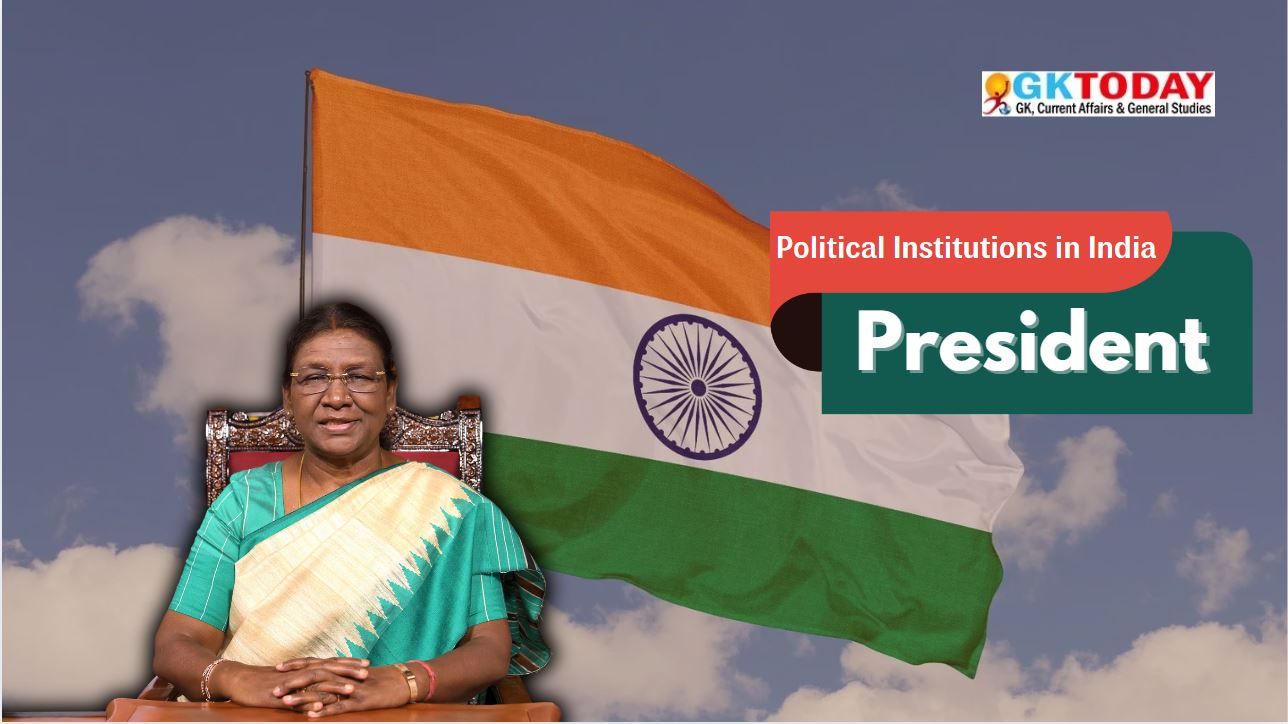President of India – UGC-NTA NET Political Science Study Notes
The President of India serves as the constitutional head of the state and embodies the unity and integrity of the nation. This role is vital in the functioning of the Indian democracy, acting primarily on the advice of the Council of Ministers. The President’s position is defined by various articles in the Constitution of India, outlining their powers, functions, and responsibilities.
Election of the President
The President is elected by an electoral college. This electoral college comprises:
- Elected members of both Houses of Parliament.
- Elected members of the Legislative Assemblies of States and Union Territories, including Delhi and Puducherry.
The election employs a single transferable vote system. This system ensures that the elected representatives contribute to a fair representation of votes.
Tenure of the President
The President serves a term of five years, as stipulated in Article 56 of the Constitution. They are eligible for re-election, allowing for continuity or change based on the electorate’s choice.
Qualifications for Presidency
To qualify for the presidency, a candidate must meet specific criteria:
- Must be a citizen of India.
- Must be at least 35 years old.
- Must be qualified to be a member of the Lok Sabha.
These qualifications ensure that the President has level of experience and understanding of governance.
Oath of Office
The President’s oath is administered by the Chief Justice of India or, in their absence, the senior-most judge of the Supreme Court. This ceremony puts stress on the importance of the judicial system in upholding constitutional values.
Powers of the President
The President of India holds various powers, which can be categorised into executive, legislative, judicial, and emergency powers.
Executive Powers
The President’s executive powers include:
- Appointing the Prime Minister.
- Appointing other ministers based on the Prime Minister’s advice.
- Appointing Governors of States.
- Appointing the Attorney General of India and the Comptroller and Auditor General.
These appointments are crucial for the functioning of the government.
Legislative Powers
The President also has legislative powers:
- Summoning and proroguing sessions of Parliament.
- Giving assent to bills, with the ability to return a bill once for reconsideration.
- Addressing the first session of Parliament after each general election and the first session of each year.
These powers enable the President to play an active role in the legislative process.
Judicial Powers
Under Article 72, the President possesses judicial powers, which include:
- The ability to grant pardons.
- Issuing reprieves, respites, or remissions of punishment.
These powers serve as a check on the judicial system.
Emergency Powers
The President can declare emergencies under specific circumstances:
- National emergency (Article 352).
- State emergency (Article 356).
- Financial emergency (Article 360).
Such powers are critical for maintaining the integrity of the nation during crises.
Impeachment of the President
The President can be impeached for violations of the Constitution, as outlined in Article 61. The impeachment process requires:
- A two-thirds majority in both Houses of Parliament.
- Framing and proving specific charges against the President.
This process ensures accountability at the highest level of government.
Succession and the Vice President
In the event of a vacancy, the Vice President acts as President until a new election is held. The Vice President is also elected by an electoral college and assumes presidential duties during the President’s absence.
Key Articles in the Constitution
Several articles in the Constitution are for understanding the role of the President:
| Article | Description |
|---|---|
| Article 52 | Establishment of the office of the President. |
| Article 53 | Executive power of the President. |
| Article 54 | Election of the President. |
| Article 55 | Manner of election of the President. |
| Article 56 | Term of office of the President. |
| Article 61 | Procedure for impeachment of the President. |
These articles provide a framework for the President’s role and responsibilities.
Notable Presidents of India
India has had several notable Presidents, including:
- Dr. Rajendra Prasad – The first President of India.
- Dr. Zakir Husain – The first Muslim President.
- Pratibha Patil – The first woman President.
- Ram Nath Kovind – The 14th President.
Each of these Presidents contributed uniquely to the office and the nation.
Presidential Address
The President addresses both Houses of Parliament at the beginning of the first session after each general election and the first session of each year. This address outlines the government’s agenda and priorities.
Diplomatic Powers
The President represents India in international forums and affairs. They appoint ambassadors and high commissioners to other countries, playing a vital role in foreign relations.
Legislative Process
The President can summon and dissolve the Lok Sabha. They can also call for a joint sitting of both Houses in case of a legislative deadlock. This function is crucial for maintaining legislative efficiency.
Financial Powers
According to Article 117, no money bill can be introduced in Parliament without the President’s recommendation. This power ensures that the executive has a say in financial matters. In this way, the President of India serves a very important role in the Union Executive, embodying the constitutional framework of the nation. Their powers span across various domains, ensuring the smooth functioning of the government and safeguarding democratic principles. About the President’s role is essential for grasping the broader political landscape of India.





